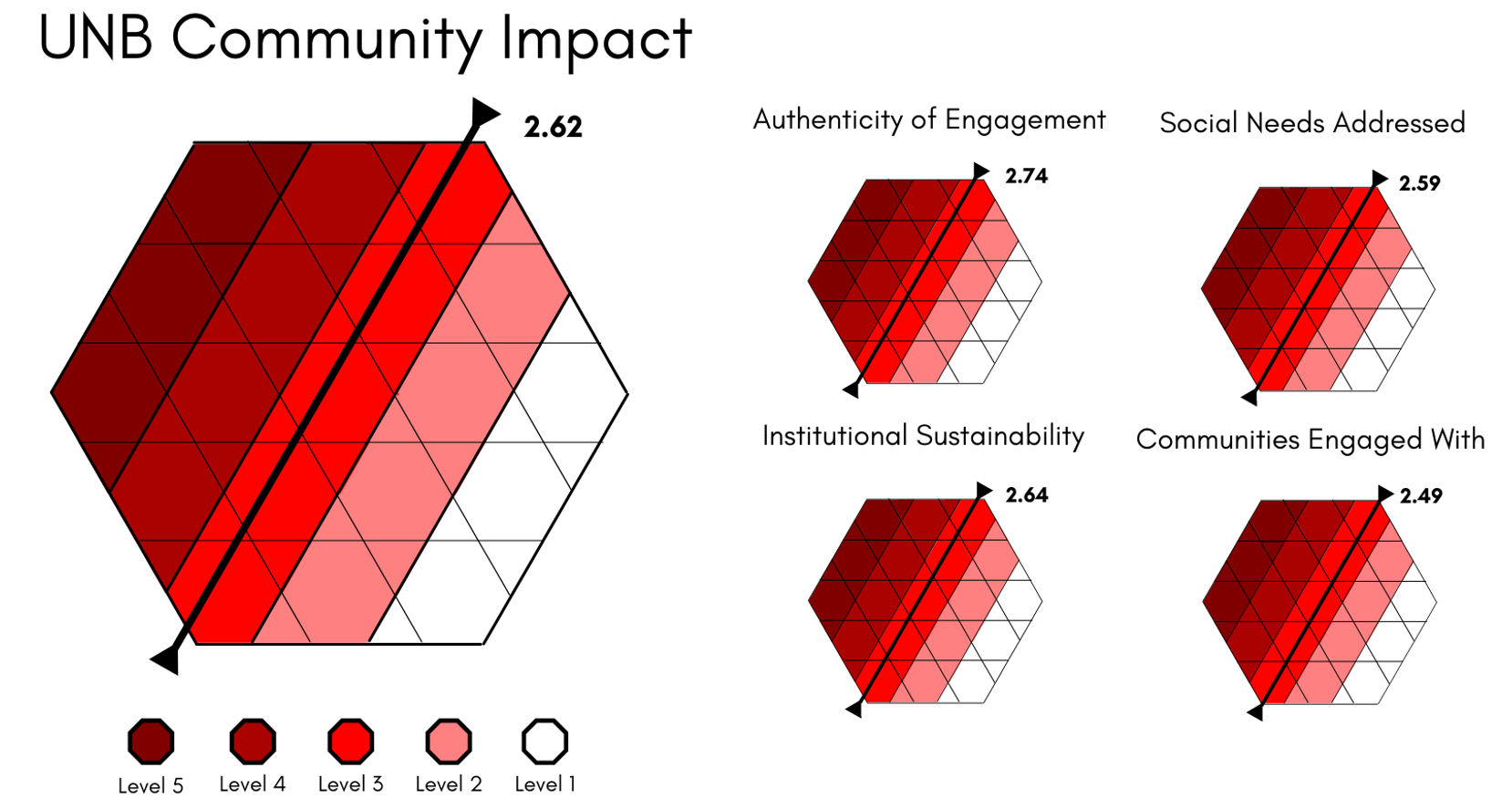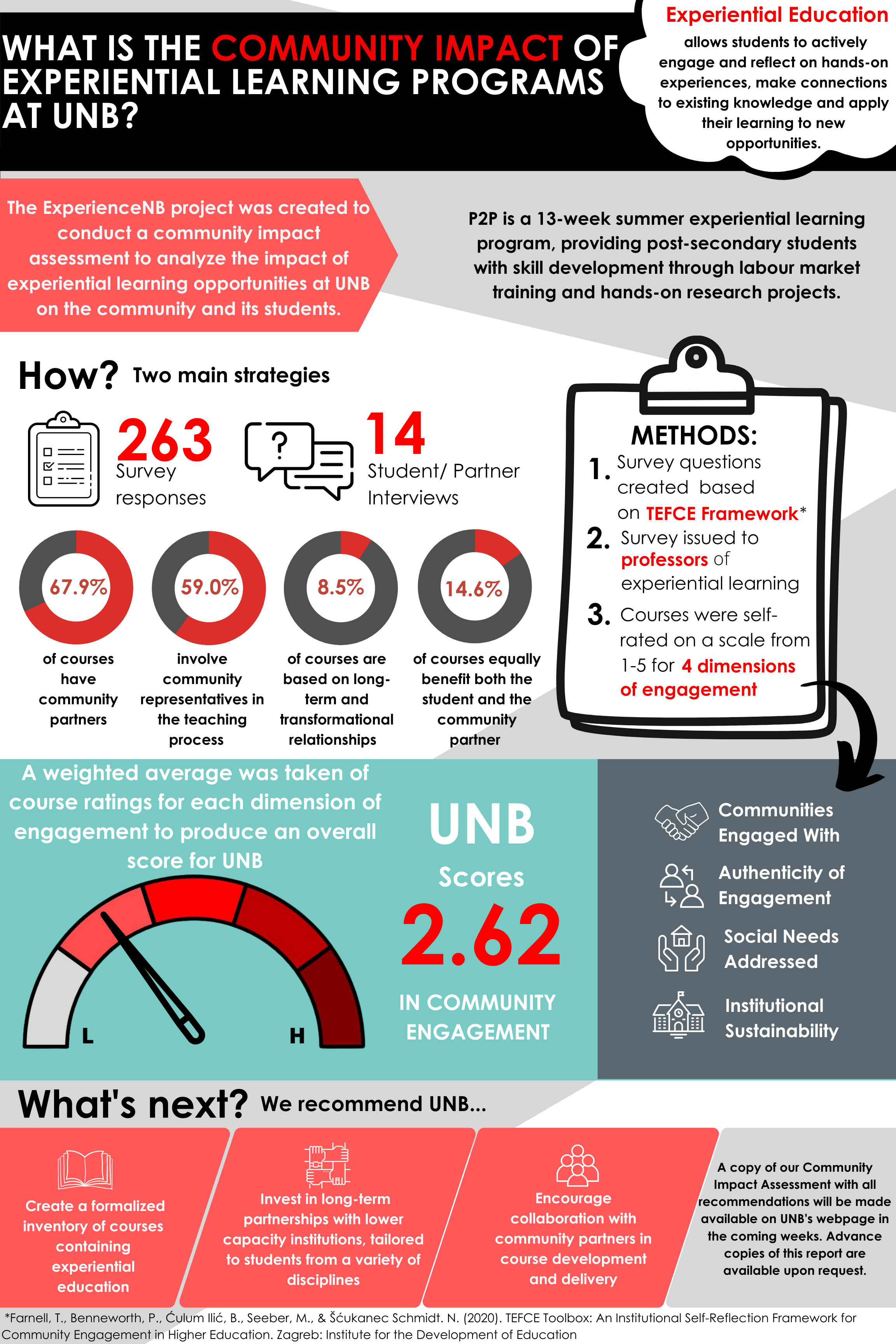Recent Articles
Categories
Introduction
Experiential education (i.e., a direct experience with content and environment) goes beyond listening in a classroom – it allows students to actively engage and reflect on hands-on experiences, make connections to existing knowledge, and apply their learning to new opportunities. As the world modernizes, new skillsets are needed, making experiential learning one of the most important investments for a university. This is where Pathways to Professions (P2P) comes in.
P2P is a summer experiential learning program developed by the New Brunswick Institute for Research, Data and Training (NB-IRDT) to provide post-secondary students with skills development opportunities through labour market training and hands-on research. In 2021, P2P launched ExperienceNB: a research stream focused on improving the quality of experiential learning at the University of New Brunswick (UNB). We are the 2021 ExperienceNB team, comprised of five UNB students: a project manager, three researchers, and a communications coordinator.
The ExperienceNB project, led by Dr. Sarah King, is the first of its kind in Canada to assess the impact of a university’s experiential learning opportunities on students and the community. To achieve this objective, our team developed a Community Engagement Survey, based on a modified version of the institutional self-assessment titled Towards a European Framework for Higher Education (TEFCE) Community Engagement Toolbox. We distributed the survey to UNB faculties whose courses include experiential education. We also interviewed students and employers involved in experiential education programs at UNB and used this data to write success stories, showcasing examples of how UNB engages with the community.
Our Community Engagement survey evaluated engagement based on four dimensions: Authenticity of Engagement, Social Needs, Institutional Sustainability, and Communities Engaged With. Each dimension was rated on a scale from 1-5, from low to high levels of engagement. Based on qualitative data from 234 responses, UNB ranked around level 3 for each dimension (Table A), showing moderate levels of community engagement.
Table A
Interviews revealed that students participating in experiential education high in community engagement gained valuable skills that can be transferred to their future careers. They also made tangible contributions to their communities as they gained exposure to the hands-on duties involved in addressing local issues. Interviews also showed that employers recognize the importance and value of the experiential learning opportunities they provide.
Based on our findings, we have compiled 7 actionable recommendations for UNB to consider, relating to the variety, length, and types of partnerships that should be prioritized and the role of students and partners in community-engaged opportunities. We also recommend the creation of an inventory of experiential courses and the development of educational materials on experiential learning. We are excited to see the progress UNB makes as it works toward building an engaged community and creating sustainable growth.












